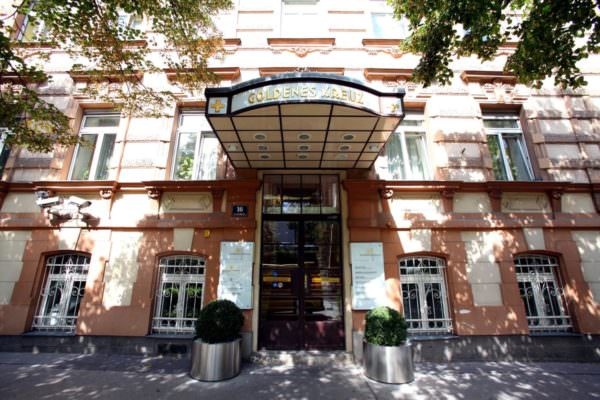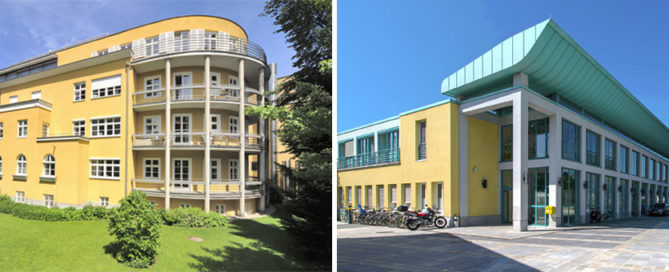Immunotherapy
Immunotherapy is a treatment that is using the body’s immune system to help fight cancer. Also known as the biological therapy or biotherapy, immunotherapy consists of stimulating the immune system with inhibitors.
In the last few decades, immunotherapy has become an important part of the treatment in cancer. There are hundreds of studies annually on how to stimulate the immune system, and they will influence how we treat cancer in the future.
How does the immune system work?
The immune system consists in organs, special cells and substances that help protect the body against infections and other diseases. Immune cells and substances travel throughout the body to protect it from germs that cause various infections.
The immune system keeps track of all substances found in the body. Any new substance appearing in the body is a problem, causing the immune system to attack. For example, microbes contain certain proteins that are not normally found in the human body. The immune system see these substances as “foreign” and attacks them. The immune response can destroy any microorganism containing the foreign substance, such as germs or cancer cells.
Sometimes, the immune system does not see cancer cells as foreign because they are not quite different than normal cells. When the immune system recognizes them, the response may not be strong enough to destroy the cancer. To overcome this, researchers have found ways to help the immune system recognize the cells so that it destroys them on time.
What is immunotherapy?
Immunotherapy includes treatments that work in different ways. Some of them are stimulating the immune system in a very general way (strengthening the immune system), others can help stimulate the immune system to attack cancer cells specifically.
Types of immunotherapy
The main types of immunotherapy used to treat cancer are:
- Biological response modifiers – they don’t destroy cancer directly, but are capable to trigger the immune system to attack tumors. Biological response modifiers include cytokines (protein molecules that send information between different cells);
- Antitumor Vaccines – Researchers develop vaccines that can encourage the immune system to better recognize cancer cells. Antitumoral vaccines are only used after the diagnosis of cancer has been confirmed;
- Monoclonal antibodies – substances produced in the laboratory that can locate and distroy cancer cells wherever are in the body. These antibodies can be used to locate tumors (cancer detection), to send information to the immune cells about tumor localization to destroy them or to provide treatment with drugs, cytostatics or radiotherapy directly to a tumor;
- Inhibitors of immune system control points – these drugs help the immune system to recognize cancer cells from healthy cells;
- Non-specific immunotherapy – stimulates the immune system in a general way to attack cancer cells in the body.
In which types of cancer is used immunotherapy?
Immunotherapy is part of the revolutionary therapies authorized in Europe for the following types of cancer:
- Metastatic skin cancer;
- Lung cancer;
- Cancer lymfatic.
However, recent studies show that immunotherapy can be used in conjunction with chemotherapy or radiotherapy for all cancers treatment.
The side effects of immunotherapy
Like other forms of cancer treatment, immunotherapy can cause a number of side effects. These can be different from one person to another.
Biological response modifiers can cause flu-like symptoms, including fever, chills, pain, fatigue and loss of appetite. In addition, skin rashes or swelling may occur where the biological response modifiers are injected. Monoclonal antibodies can lead to serious allergic reactions and control inhibitors can allow the immune system to attack normal organs in the body.
Talk to your doctor to find out if immunotherapy is right for your disease.
In Vienna, cancer treatment is personalized according to the patient’s DNA.
Contact the AT-MED team and find out how you can benefit from the immunotherapy treatment at the best hospitals and private clinics in Vienna.
Official partner for top hospitals and clinics in Austria
Doctors treating you in Austria through AT-MED

Prof. Univ. Dr. Christian Singer, obstetrician-gynecologist

Prof. Univ. Dr. Johannes Drach, internist, specialist in haemato-oncology

Prof. Univ. Dr. Schillinger Martin, cardiologist, angiologist

Prof. Univ. Dr. Ulrich Steinhart, obstetrician-gynecologist

Dr. Rainer Kotz, Orthopedics and endoprotection
Testimonials
Fast! Efficient! Accessible! And a very communicative and enjoyable team. With help of AT MED I was consulted by Prof. Martin Schillinger. I felt in good hands.*
The AT MED team meant for me a second chance to live. In my country I wasn’t given any chance but the doctors in Austria made my recovery possible.*
In my situation the most important aspect was the fast response I got. I was scheduled and started my treatment within days from the first contact. With AT MED I received the best treatment and was treated with respect.*
*Disclaimer: All statements belong to our customers. Results and treatments may vary depending on each case.
When you contact AT-MED please keep in mind the following:
- Every medical consultation costs 150 – 300 EUR depending on the doctor’s specialization and the complexity of your medical case.
- The cost of every oncological therapy session starts from 4900 EUR.
- Imagery interpretation costs 150 EUR.
- In order to answer your request in maximum 48 hours we need your complete medical record with information about previous interventions, treatments and therapies, smoking habits, allergies as well as important medical information about 1st degree relatives.
- Please send the entire archived file in a single e-mail (to office@austriamed.eu). Sending files in multiple e-mails as well as in several Whatsapp conversations slows down the diagnose process.
- For emergencies please call directly at 0786787878, at any hour.












